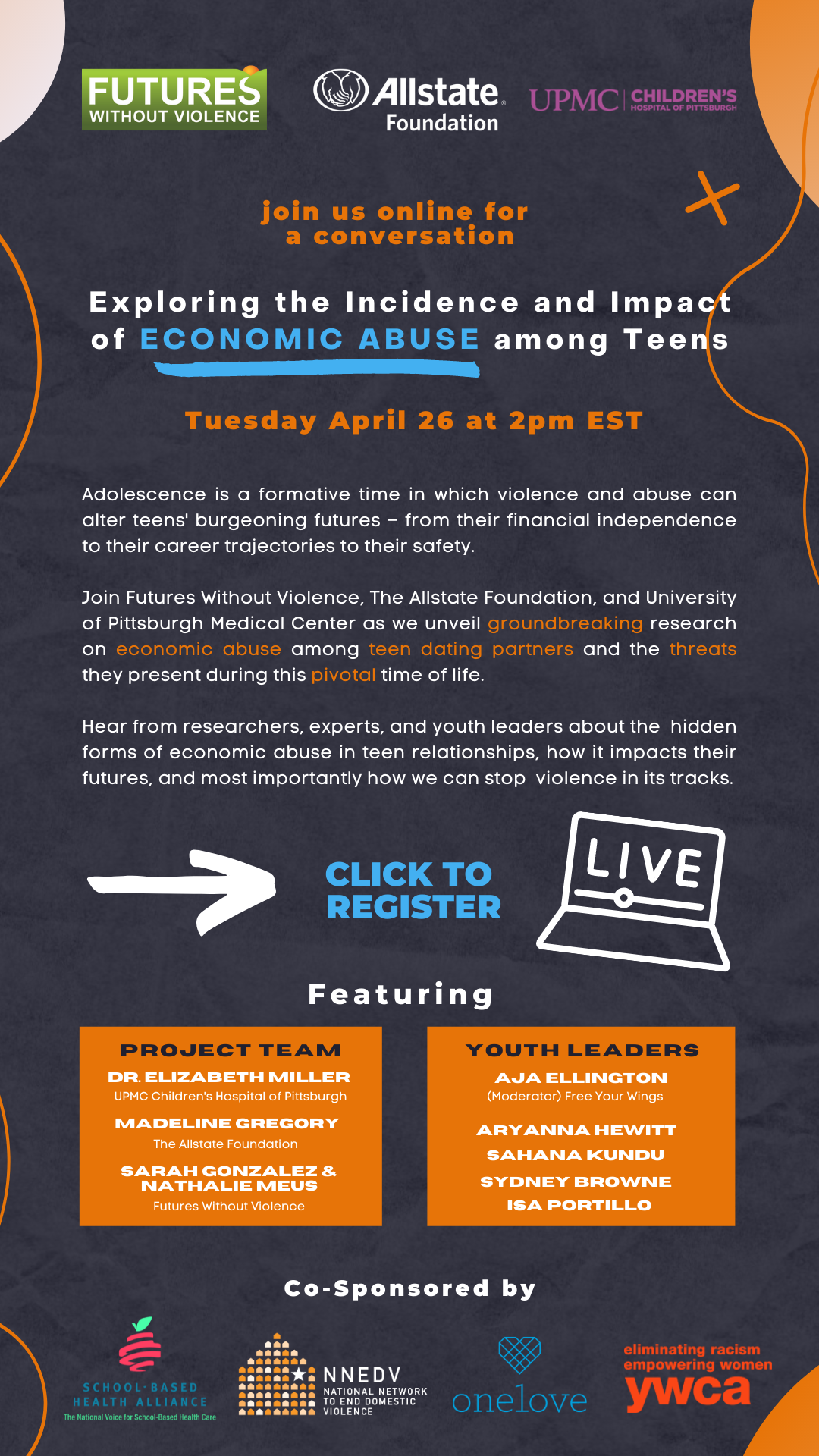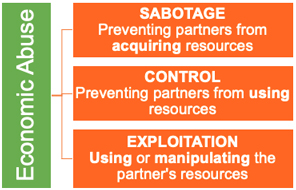Exploring Teen Dating Violence and Economic Abuse
Despite the potential lifetime impacts, economic abuse has been long overlooked among teen dating partnerships. Knowing what is at stake, Futures Without Violence in partnership with The Allstate Foundation and in collaboration with University of Pittsburgh Medical College, surveyed nearly 3,000 teens to explore how economic abuse – from disrupting education to interfering with employment to financial control – shows up in their relationships. The findings are eye opening.
Join us on April 26th as we release the findings and make a call to action. Register today!

FOUNDATIONS FOR ECONOMIC INDEPENDENCE AND SUCCESS
As 13 to 19 year-olds move toward adulthood and independence, they begin making decisions without parental or guardian involvement, have their first romantic relationships, hold their first job or internship, and start to handle their own money. This time of new responsibilities and experiences can be extremely challenging as teens begin to navigate the complexity of balancing their independence with forging close relationships. Experiencing abuse during these formative years can have lasting harm on future independence and well-being, particularly if such abuse impacts economic opportunity.

WHAT IS ECONOMIC ABUSE?
Economic abuse is defined as “a deliberate pattern of control in which individuals interfere with their partner’s ability to acquire, use, and maintain economic resources.”
RECOGNIZING THE SIGNS WITH TEEN DATING PARTNERS
Recognizing economic abuse can be challenging within teen relationships as some behaviors, such as asking your partner to study less to spend more time together, for example, may not be seen as objectively harmful. However, the cumulative impact of seemingly harmless actions can have a profound impact on future wellbeing and potential for success.
Disrupting education and employment opportunities is a common tactic used but abusive partners to control victims. Teens who experience physical and sexual violence are more likely to feel unsafe at school, see their grades drop, and drop out of school. Missing out on early employment opportunities diminishes teens’ ability to save for school, develop the soft skills necessary to succeed within the workplace, and gain experiences that allow them to attain supervisory roles. Teens who are able to work are at a heightened risk of workplace sexual harassment which can lead to poorer health, job loss, and economic instability throughout their lives. Finally, teens with access to financial resources may be coerced into sharing their passwords or have their earnings and other resources manipulated or stolen by abusive partners.
Download our factsheet here:


